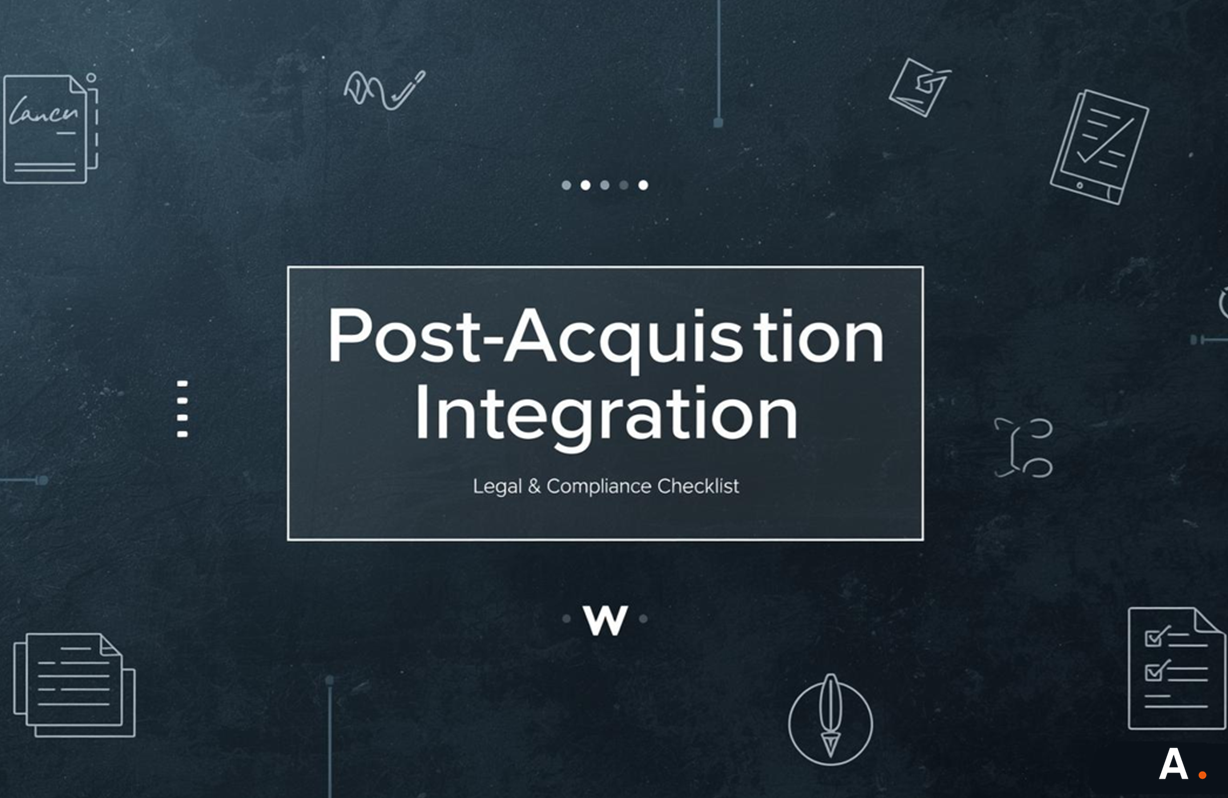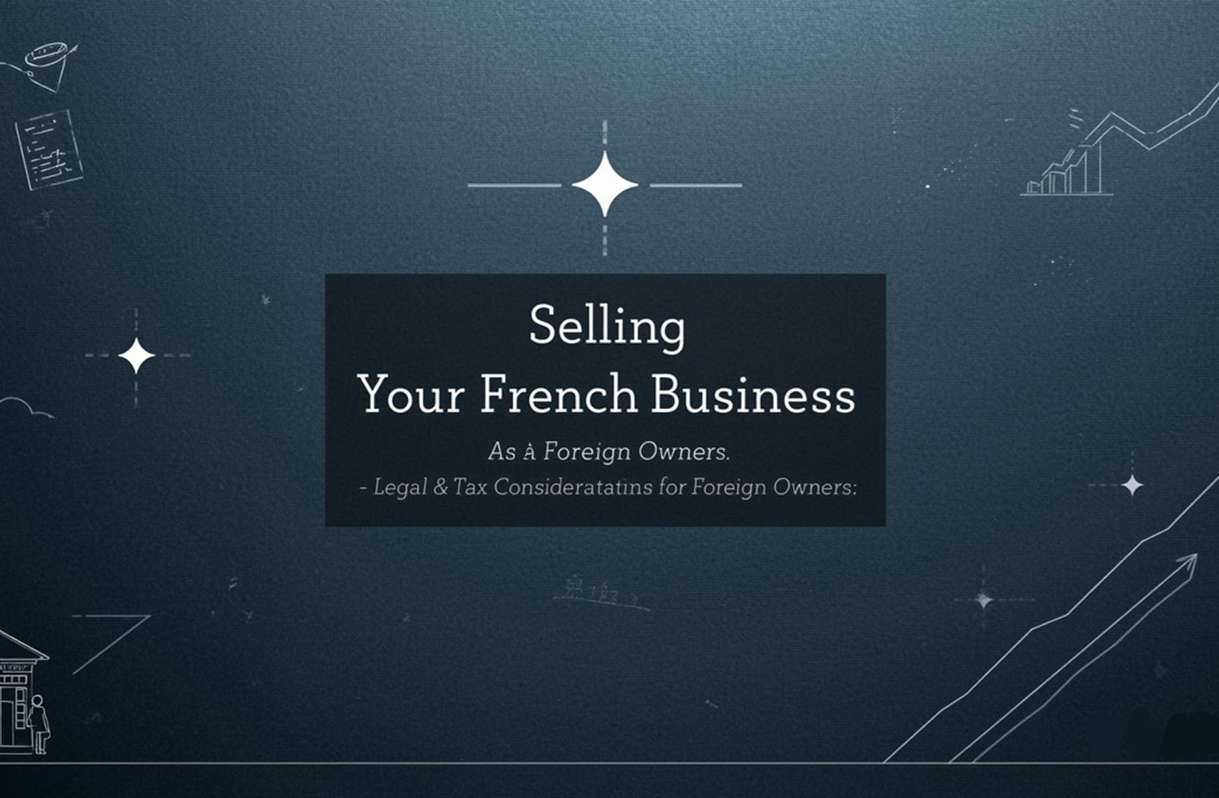Legal and tax strategies to grow and transfer your business in France
Introduction: Planning for Growth and Succession
Successfully doing business in France is not only about starting a company but also about strategically planning its growth and eventual transfer or succession. Entrepreneurs and investors should consider from an early stage how to optimize legal and tax structures for expansion, and how to prepare for a future handover – whether passing the business to the next generation or selling it to a third party. France offers a variety of legal mechanisms and tax incentives to facilitate business growth, restructuring, and transmission, but these require foresight and proper use of available laws.
In this article, we outline key strategies under French law (and relevant EU frameworks) to grow your business efficiently and to transfer it with minimized tax burden and legal risk. From choosing tax-efficient corporate structures, to leveraging fiscal incentives, to utilizing succession planning tools like the “Pacte Dutreil” for family businesses, foreign business owners in France can greatly benefit from an integrated legal-tax approach. The overarching theme is anticipation: by planning ahead, you can align with French legal provisions that reward long-term investment and smooth business transmissions.


Optimizing Your Corporate Structure for Growth
How you structure your business can have profound implications for growth and eventual transfer. One common strategy in France is to use a holding company (often a Société Holding, frequently structured as an SAS or SARL) on top of operational subsidiaries. A French holding company can centralize management and finances for a group of businesses. Importantly, French tax law provides beneficial regimes for holding structures:
- Under the parent-subsidiary regime, a French parent company that holds at least 5% of the shares of a subsidiary for at least two years can receive dividends from that subsidiary largely tax-free. Specifically, 95% of the distributed dividends are exempt from corporate tax, with only a 5% portion taxed (this 5% is meant to cover nondeductible charges). If the companies are integrated in a tax consolidated group, the exemption can even reach 99% of the dividend. This regime (stemming from Article 145 and 216 of the French Tax Code) encourages businesses to reinvest profits within a group structure without incurring heavy taxation each time profits move up from a subsidiary to a parent. For a growing company, setting up a holding company to own new ventures or acquisitions can thus reduce tax leakage, leaving more funds for reinvestment.
- Similarly, when a French holding company eventually sells a subsidiary, the capital gain may benefit from the participation exemption: if the shares sold qualify as long-term investments (held >2 years, not real-estate companies), 88% of the gain is exempt from tax, meaning effectively only 12% of the gain is taxed at the normal rate. This substantial relief (often called the “long-term capital gains regime”) can make France an attractive place to structure acquisitions and exits within a group. It effectively results in a very low tax rate on gains from the sale of subsidiaries, provided conditions are met. Utilizing this requires planning your acquisitions through a French holding entity.
Beyond tax, a holding company also provides legal flexibility for growth: it can raise capital at the group level, guarantee financing for subsidiaries, and orchestrate mergers or acquisitions more easily. France, being in the EU, also allows cross-border expansions with relative ease. EU directives such as the Cross-Border Mergers Directive facilitate merging a French company with companies from other EU countries in a tax-neutral and legally streamlined manner. As you grow your business internationally, you might even consider forming a European Company (Societas Europaea, SE), which is a supranational corporate form allowing operation under unified rules across EU nations. The SE can be useful for larger enterprises operating in multiple EU states, but for most growing businesses, the focus will be on leveraging domestic structures with international coordination.
Another strategy for growth is to take advantage of French tax credits and incentives. France offers one of the most generous R&D tax credits in the world: the Crédit d’Impôt Recherche (CIR). If your business engages in qualifying research and development, you can receive a tax credit equal to 30% of R&D expenditures up to €100 million, and 5% of the excess. This credit is used to offset corporate tax (and is refundable if it exceeds your tax due). By investing in innovation, companies not only further their growth but also significantly cut their tax bill – essentially the government finances part of your R&D. There are also innovation grants and subsidies at both French and EU levels (for example, the EU’s Horizon Europe program, or French Bpifrance innovation aid). High-growth companies (startups) can also benefit from the Jeune Entreprise Innovante (JEI) status, which provides payroll tax exemptions for R&D staff and other tax relief, if they meet certain criteria (small, independent, >15% expenses in R&D).
Structuring financing is another legal strategy. France does not restrict foreign loans or capital inflows, and interest on loans is generally tax-deductible within certain limits. Thin capitalization and earning-stripping rules exist (aligned with EU anti-tax-avoidance directives), so one must calibrate debt and equity. Many expanding businesses in France use OCA (convertible bonds) or BSPCE (stock options for employees) and other instruments to fuel growth while managing tax impact. The legal point is to ensure these instruments are issued in compliance with company law formalities and that their tax treatment is understood (for instance, French law provides favorable taxation for gains on BSPCE for startup employees, making it a popular tool to attract talent in growth stages).
Strategies for Transferring or Selling Your Business
As your business matures, you should prepare for eventual succession or sale well in advance. France’s legal and tax system provides specific mechanisms to encourage continuity of businesses, especially family-owned ones, and to facilitate sales under fair conditions. Below are key strategies:
-
Family Business Succession – Pacte Dutreil and Gift Planning
If your goal is to pass the company to your children or heirs, France offers a notable tax break via the Pacte Dutreil (business transfer pact). This arrangement, codified in Article 787 B of the Tax Code, allows a 75% reduction in inheritance or gift tax on qualified business transfers. In practical terms, if you set up a Pacte Dutreil, only 25% of the business value is subject to gift or estate tax, which for substantial businesses can save heirs a huge amount. To benefit, you (and your family or other transferees) must agree to hold a certain portion of the company’s shares collectively for at least two years before the transfer, and the heirs must then continue to hold and run the business for at least four years after the transfer. One of the heirs or family members usually has to continue in a management role as well. By locking in a long-term commitment to the business, the tax authorities essentially reward the stability by granting this 75% exemption. Planning a Dutreil pact requires careful coordination – typically, one drafts an agreement among shareholders (often family members) and registers it with the tax administration when making a gift of shares or upon death. The good news is that multiple business types (companies operating a commercial, industrial, artisanal, agricultural or professional activity) can qualify, and recent guidance has made the rules somewhat more flexible in defining holding companies and mixed activities for eligibility.
In addition to the Pacte Dutreil, France also provides annual gift tax allowances (each parent can give about €100,000 tax-free to each child every 15 years). A strategy for family succession is to start gifting small percentages of the company over time taking advantage of these allowances and valuation discounts (shares of a minority stake can be valued with a discount for lack of control/marketability). By gradually transferring shares during your lifetime, you reduce the tax at death and also integrate the next generation early. French law even allows donation with reserve of usufruct, meaning you can give the shares to your children (bare ownership) while retaining the right to dividends or control (usufruct) until you decide to fully step back. This is a civil law mechanism often used in family company succession to optimize both control and tax outcome.
It’s important to also align these plans with French inheritance law. Unlike common law jurisdictions, France has forced heirship: a portion of your estate is reserved for children. Business owners often use tools like life insurance or the Dutreil pact to ensure the business can be passed on without forcing a sale to satisfy inheritance shares. EU Regulation 650/2012 (on succession law) allows foreign nationals residing in France to opt for their home country’s succession law in a will, which can sometimes help avoid forced heirship, but that’s a complex topic beyond our scope. Suffice to say, planning with French notaries and lawyers is crucial for a smooth generational transfer.
-
Selling Your Business – Preparation and Tax Optimization
If you intend to sell the company to an outside buyer (another company or private equity, for example), several strategies can enhance value and reduce taxes:
Clean Up and Documentation: Legally, a well-prepared business sale involves ensuring all corporate documentation is up to date (proper filings, clear title to assets), and any potential legal issues (litigation, compliance breaches) are resolved or at least identified. Many sellers conduct an internal due diligence audit before going to market. This way, you can address problems in advance rather than during the heat of negotiations. Also, consider separating non-core assets from the business beforehand – for instance, if the company owns real estate not needed for operations, you might spin it off to a separate entity. This makes the offering more attractive and focused, and possibly avoids transfer taxes on the real estate as part of the deal.
Asset vs Share Deal: Decide whether a share sale or an asset sale is more advantageous. In a share deal, the buyer purchases your shares and thereby takes on the company with all its assets and liabilities. In an asset deal, you (or your company) sell the business’s assets (which in French law could be structured as selling a fonds de commerce, i.e., the business as a going concern). There are pros and cons to each: a share deal is simpler in that contracts and permits stay with the company (no need for individual transfers), but the buyer will insist on warranties because they inherit all liabilities. In an asset sale, you can carve out unwanted liabilities (the buyer avoids them), but it requires more formalities (third-party consents for assignments of leases, contracts, etc., and potentially forming a new entity to house assets). Tax-wise, transfer taxes are higher on asset sales (roughly 3% on business assets beyond a €23,000 exemption, and 5% on any real estate) compared to share sales (0.1% for shares of an SARL or SAS, or 0.3% for large listed shares). This often makes share deals more attractive for going concerns. As a seller, you should be flexible but also seek advice on which structure yields the better net outcome for you. Often, buyers prefer a share deal for an intact business, and sellers prefer a share deal to utilize capital gains tax treatment on shares, whereas an asset sale might trigger corporate tax inside the company plus a dividend tax on extraction of proceeds.
Capital Gains Tax Reduction: When you sell your company (shares), the default tax for an individual owner is a flat 30% (the “PFU” which includes 12.8% income tax + 17.2% social contributions). However, there are important tax reliefs to lower the effective tax: If you are a small business owner retiring, French tax law grants a one-time allowance of €500,000 on the capital gain from selling your company. This is often called the abattement dirigeant partant à la retraite (retiring director allowance). The conditions are that you have been a manager of the company for at least 5 years, you hold at least 25% of the company (with your family), and you actually retire (cease all functions) within two years of the sale. Essentially, the first €500k of your gain is tax-free, and only the rest is taxed at the flat rate (or progressive rate if you opt out of the flat tax). This is a significant incentive for entrepreneurs who built up a qualifying PME (small/mid-size enterprise) to hand over the reins. Note that this allowance was recently extended to sales through end of 2024 and may be further extended by law. If your gain is larger than €500k, you may also utilize older provisions like taper relief for shares held over 8 years (though the flat tax regime largely replaced those for most people). In sum, timing your retirement with the sale can reap a substantial tax reward.
Another tool: if your company is small and you sell it (or cease activity) without going into a larger business, Article 151 septies of the Tax Code can fully exempt capital gains on a sale of a business (or business assets) if the business value is below certain thresholds (€300k for full exemption, tapering until €500k). This often applies to sole proprietorships or small partnerships, but it’s worth checking if you fall in that category. Separate from that, if you simply liquidate a company, there are other reliefs; however, typically sellers aim for the retiring allowance or pacte Dutreil if it’s family.
Succession of Management: A smooth transfer isn’t just about money and taxes – it’s about continuity. If you are transferring to your children or a buyer, consider a transition period where you stay on as an advisor or honorary chairman for a year or two. Legally, you can agree on a consulting contract post-sale, or an earn-out where part of the price depends on the company’s future performance (common when the former owner’s continued involvement is beneficial). Just be cautious: earn-outs need careful drafting under French law to avoid disputes, and they have specific tax treatment.
Finally, if selling to an external party, secure confidentiality and competitive bidding. Use non-disclosure agreements when sharing information with potential buyers. If you engage multiple bidders, an organized auction can maximize price (though the legal process might be managed by investment bankers). From a legal view, once you pick a buyer and sign a letter of intent, know that under French law you’ll be negotiating under a duty of good faith (Civil Code Article 1112). Breaking off arbitrarily could expose you to damages if the other side incurred costs in justified reliance. It’s not as strict as some other countries, but France does hold parties to a standard of fair dealing in pre-contractual negotiations.
Ensuring a Successful Handover
Whether passing your business on or selling it off, a few additional legal steps can secure the process:
- Employee Considerations: In any transfer (share or asset), employees’ contracts will continue with the business (automatically in an asset sale as per French labor code, Article L1224-1). It’s crucial to communicate properly with employees to maintain morale. Also, as noted earlier, if you are selling a small company ( <250 staff), you must inform employees in advance. Non-compliance can lead to a small fine (up to 2% of sale price) but not sale invalidation. Still, it’s good practice to follow the rule to prevent any bitterness or bad press. If employees are interested in buying, their offer must be considered on equal footing, though you’re not obliged to accept it.
- Non-Compete and Goodwill: When you sell a French business, by default you are allowed to compete again unless agreed otherwise. Most buyers will insist on a non-compete clause for a certain period (e.g., 2–3 years) within a geographic area and sector. French case law will enforce reasonable non-competes in sale-of-business agreements, especially since the seller typically receives payment for goodwill. Make sure any such clause is proportionate and clear, to be enforceable.
- Documentation and Legal Formalities: The sale or transfer should be formalized in a written contract (share purchase agreement or asset sale agreement). French law actually requires a written acte de cession for a business sale enumerating the transferred elements. Make sure it covers all essential points: price (and price adjustment if any), the list of assets or shares, any guarantees (representations and warranties) you give to the buyer, conditions precedent (like getting an approval or a loan), etc. Upon selling shares, remember to file the transaction with the tax authorities within 30 days and pay the registration duty. If selling an entire fonds de commerce, there are specific procedures (e.g., publication of the sale in a journal, clearance of any seller’s tax debts from the sale proceeds) to protect purchaser and creditors.
- EU Considerations: If your business has an international footprint, consider cross-border issues. For example, if you have operations or assets in other EU countries, transferring those might invoke the EU Merger Directive or local law requirements. Fortunately, the EU’s regulations often allow cross-border mergers or asset transfers without immediate taxation, deferring taxes to ensure business continuity. Also, if selling to an EU-based buyer, you benefit from the EU freedoms – e.g., no discriminatory restrictions should apply. If selling to a non-EU buyer in a sensitive sector, ensure the FDI approval (if required) is obtained as a condition before closing.
In conclusion, growing and transferring a business in France can be achieved in a tax-efficient and legally secure manner by using the right strategies. France’s legal system, while sometimes complex, offers pro-business tools: from holding regimes that avoid double taxation of group profits, to R&D incentives fueling innovation, to well-crafted measures that facilitate passing a business to family or incentivize entrepreneurs to retire without punitive taxes. The key is to plan ahead – consult with legal and tax advisors early to set up structures that will pay off in the long run. By doing so, you position your French business not only to prosper during your ownership, but also to endure and succeed in the hands of new owners when the time comes for succession or sale.
About the Author :
Business lawyers, bilingual, specialized in acquisition law; Benoit Lafourcade is co-founder of Delcade lawyers & solicitors and founder of FRELA; registered as agents in personal and professional real estate transactions. Member of AAMTI (main association of French lawyers and agents).
FRELA : French Real Estate Lawyer Agency, specializing in acquisition law to secure real estate and business transactions in France.
Paris, 15 rue Saussier-Leroy, Paris
Bordeaux, 24 Rue du manège, 33000 Bordeaux
Lille, 40 Theater Square, 59800 Lille

This article is provided for general information only and may not reflect the most recent legal or tax developments. It does not constitute legal advice. Please contact us for personalised guidance before making any decision.




